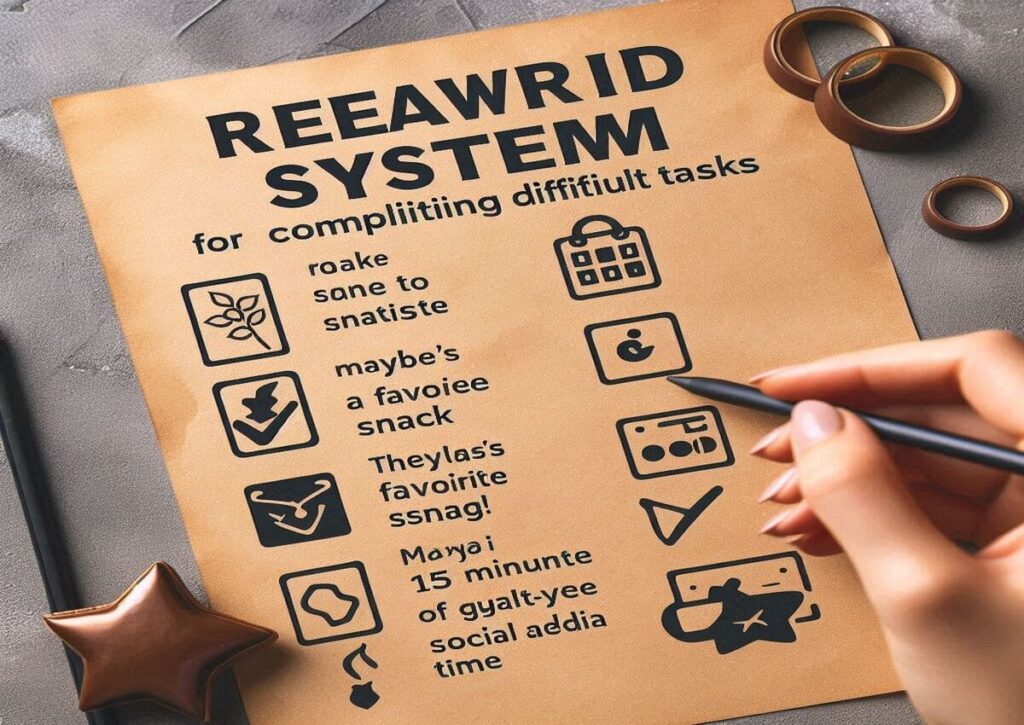How to Train Your Brain to Love Difficult Tasks in Just 30 Days
Tackling challenging tasks often feels like an uphill battle. But what if you could rewire your brain to not just tolerate, but actually enjoy difficult work?
This 30-day plan aims to do just that, helping you build mental resilience and find satisfaction in conquering complex challenges.
Let’s expose the secret on How to Train Your Brain to Love Difficult Tasks, The 4-Week Brain Training Secret to Conquering Hard Tasks.
The Science of Brain Training
Before taking a deep look into the 30-day plan, it’s crucial to understand the neuroscience behind it. Our brains are incredibly adaptable, a quality known as neuroplasticity.
This means we can literally reshape our neural pathways through consistent practice and mindset shifts.
| Brain Plasticity Facts | Description |
| Definition | The brain’s ability to change and adapt |
| Key Process | Formation of new neural connections |
| Influencing Factors | Learning, experience, and environmental stimuli |
| Benefits | Improved cognitive function and skill acquisition |
| Duration | Occurs throughout life, not just in childhood |
Source: Society for Neuroscience
Week 1: Mindset Shift
Day 1-7: Reframe Your Perspective
Start by changing how you view difficult tasks. Instead of seeing them as burdens, reframe them as opportunities for growth.
Each day, write down three challenging tasks you face and list potential positive outcomes from completing them.
Week 2: Building Focus
Day 8-14: Embrace the Pomodoro Technique
Use the Pomodoro Technique to tackle difficult tasks. Work intensely for 25 minutes, then take a 5-minute break. Gradually increase your work intervals as you build stamina.
Week 3: Cultivating Grit
Day 15-21: Practice Deliberate Discomfort
Intentionally put yourself in mildly uncomfortable situations daily. This could be taking a cold shower, striking up conversations with strangers, or trying a new, challenging hobby.
This builds mental toughness that translates to tackling difficult tasks.
Week 4: Celebrating Progress
Day 22-30: Implement a Reward System
Create a reward system for completing difficult tasks. These rewards don’t have to be big – maybe it’s a favorite snack or 15 minutes of guilt-free social media time. The key is consistency in rewarding yourself for pushing through challenges.

Tips for Success
- Start Small: Begin with moderately difficult tasks and gradually increase complexity.
- Track Your Progress: Keep a journal of your journey, noting improvements and breakthroughs.
- Visualize Success: Spend a few minutes each day visualizing yourself successfully completing challenging tasks.
- Practice Mindfulness: Incorporate brief meditation sessions to improve focus and reduce stress.
- Seek Support: Share your 30-day challenge with friends or family for accountability and encouragement.
The Role of Neurotransmitters
Understanding the brain chemistry behind task completion can boost motivation. When you finish a difficult task, your brain releases dopamine, the “feel-good” neurotransmitter.
By consistently tackling and completing challenging tasks, you’re training your brain to associate difficulty with reward.
Long-Term Benefits
This 30-day challenge isn’t just about short-term gains. You’re building habits and neural pathways that will serve you well beyond the month.
People who excel at difficult tasks often report higher job satisfaction, faster career progression, and a greater sense of personal accomplishment.
Overcoming Setbacks
It’s normal to face obstacles during this process. If you miss a day or struggle with a particular task, don’t be discouraged.
Resilience is part of the learning process. Acknowledge the setback, reflect on what you can learn from it, and get back on track the next day.
Remember, the goal isn’t perfection, but progress. By the end of 30 days, you may not love every difficult task, but you’ll likely find yourself more willing and able to tackle challenges head-on.
Key Takeaways
Here are 4 key takeaways on “How to Train Your Brain to Love Difficult Tasks in Just 30 Days”:
- Neuroplasticity is Your Ally: The brain’s ability to adapt and form new neural connections is the foundation of this 30-day plan. By consistently practicing new habits and mindsets, you can literally rewire your brain to approach difficult tasks differently.
- Gradual Progression is Crucial: The plan emphasizes starting small and gradually increasing complexity. This step-by-step approach allows for sustainable change and helps build confidence over time.
- Reward Systems Boost Motivation: Implementing a consistent reward system for completing challenging tasks leverages the brain’s natural dopamine response, reinforcing positive associations with difficult work.
- Mindset Shift is Fundamental: The journey begins with reframing difficult tasks as opportunities for growth rather than burdens. This perspective change is critical for long-term success in embracing challenges.
FAQ on How to Train Your Brain to Love Difficult Tasks
Q: Can this really work in just 30 days? A: While significant changes can occur in 30 days, everyone’s journey is different. The key is consistency and patience.
Q: What if I miss a day? A: Don’t worry. Simply resume the next day. Consistency over time matters more than perfection.
Q: Can this technique be applied to any type of difficult task? A: Yes, these principles can be applied to various challenges, from work projects to personal goals.
Q: Are there any risks to this approach? A: While generally safe, it’s important to maintain a balance and not push yourself to unhealthy extremes.
Q: How do I maintain this mindset after the 30 days? A: Continue practicing these techniques and make them a part of your daily routine for long-term benefits.
References:
- Harvard Health Publishing: Train your brain to crave healthy foods
- Psychology Today: The Neuroscience of Changing Your Behavior
- Scientific American: How to Train Your Brain to Be More Positive





